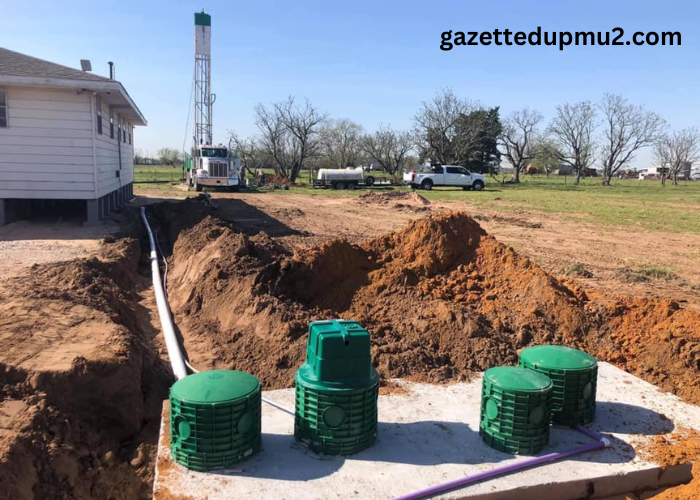When it comes to maintaining a septic system, homeowners often overlook crucial practices that can lead to expensive repairs and potential health hazards. Understanding these common mistakes is vital for ensuring the longevity of the system and safeguarding the environment. A Southern septic company, like Southern Septic Service, Inc., emphasizes that many issues arise from simple oversights, making it essential for homeowners to be informed and proactive in their maintenance efforts. By addressing these common pitfalls, homeowners can save themselves from the headache and expense of septic system failure.
Flushing Non-Biodegradable Items
1. Wipes
Even those labeled as “flushable” can cause significant clogs in the plumbing and septic systems. They do not break down like toilet paper, leading to blockages that can require professional intervention to clear. It’s essential to understand that many of these products are made from synthetic materials that do not decompose easily, resulting in buildup in pipes.
2. Paper Towels
These thick towels are designed to absorb liquid, and when flushed, they can expand and create obstructions in pipes. Paper towels can create a mass that does not break down, often leading to a backup that may affect the entire plumbing system.
3. Feminine Hygiene Products
Products like tampons and pads are often flushed but do not decompose in water, leading to major issues within the septic tank and drainfield. They can get caught in pipes, causing severe clogs and necessitating costly repairs.
Using Chemical Cleaners
Homeowners often resort to using harsh chemical cleaners to maintain their homes, but these products can be detrimental to septic systems.
1. Harsh Chemicals
Many household cleaners contain chemicals that can kill beneficial bacteria essential for breaking down waste in the septic tank. These bacteria play a crucial role in the natural decomposition process, and without them, the system can become overloaded and ineffective.
2. Drain Cleaners
While they may provide a temporary fix for slow drains, they can also cause severe damage to septic systems. The chemicals can disrupt the natural balance of bacteria and lead to system failure. Over time, reliance on these products can lead to an accumulation of solids in the tank, creating a backlog that necessitates costly pumping.
3. Alternatives
Homeowners are encouraged to seek out natural or biodegradable cleaning products that are safe for septic systems. Baking soda and vinegar are excellent alternatives for maintaining drains and can help break down buildup without harming the delicate balance of bacteria in the tank.
Neglecting Regular Pumping
Regular pumping is crucial for the health of a septic system, yet many homeowners neglect this vital task.
1. Backups
Failing to pump the septic tank regularly allows solids to accumulate, leading to backups in the home. This can cause raw sewage to overflow, posing health risks and necessitating costly emergency services. The foul odors and unsanitary conditions that accompany a backup can also impact a family’s quality of life.
2. Costly Repairs
Over time, neglecting regular pumping can lead to more severe problems, including complete system failure. Replacing a septic system can cost thousands of dollars, making regular maintenance a much more economical choice. Homeowners should factor in the cost of regular pumping into their budgets to prevent larger expenses down the line.
3. Frequency Recommendations
As a rule of thumb, homeowners should have their septic tanks pumped every three to five years, depending on usage and family size. Consulting with a professional septic service, such as Southern Septic Service, Inc., can provide tailored recommendations based on specific needs and local regulations.
Parking on the Drain Field
1. Soil Compaction
The weight of vehicles can compact the soil above the drain field, inhibiting the absorption of wastewater. Compacted soil reduces the effectiveness of the drain field and can lead to surface ponding or backups, which can also contribute to unpleasant odors and potential health hazards.
2. Pipe Damage
The pipes buried in the drain field are vulnerable to crushing if heavy vehicles are parked on them. Damaged pipes can lead to leaks and the need for extensive repairs, which can be costly and time-consuming.
3. Preventive Measures
Homeowners should be aware of the layout of their septic system and ensure that no vehicles are parked in the drain field area. Installing barriers or signage to mark off the drain field can help prevent accidental damage.
Planting Trees Too Close
Planting trees too close to the septic system is another mistake that can lead to significant damage.
1. Invasive Roots
Tree roots can grow toward the moisture and nutrients in septic systems, leading to root invasion. This can cause pipes to crack, blockages to form, and ultimately system failure. Roots can penetrate the pipes, leading to leaks and necessitating costly repairs.
2. System Disruption
As roots penetrate the pipes, they can disrupt the flow of wastewater, leading to backups and costly repairs. Homeowners should consider the mature size of trees and their root systems before planting.
3. Guidelines for Planting
It’s generally advised to keep trees at least 10 to 15 feet away from septic systems. If planting near the septic system, homeowners should opt for smaller plants or shrubs with non-invasive root systems to mitigate risk.
Conclusion
Understanding and avoiding these common mistakes can significantly extend the life of a septic system and prevent costly repairs. Homeowners should take proactive measures, such as disposing of non-biodegradable items properly, using safe cleaning products, scheduling regular pumping, and being mindful of their yard’s layout. For any concerns regarding maintenance or repairs, consulting a reliable Douglas County septic company, such as Southern Septic Service, Inc., can provide homeowners with the guidance and support needed to keep their systems running smoothly. With the right knowledge and practices, homeowners can ensure their septic systems remain functional and efficient for years to come.





